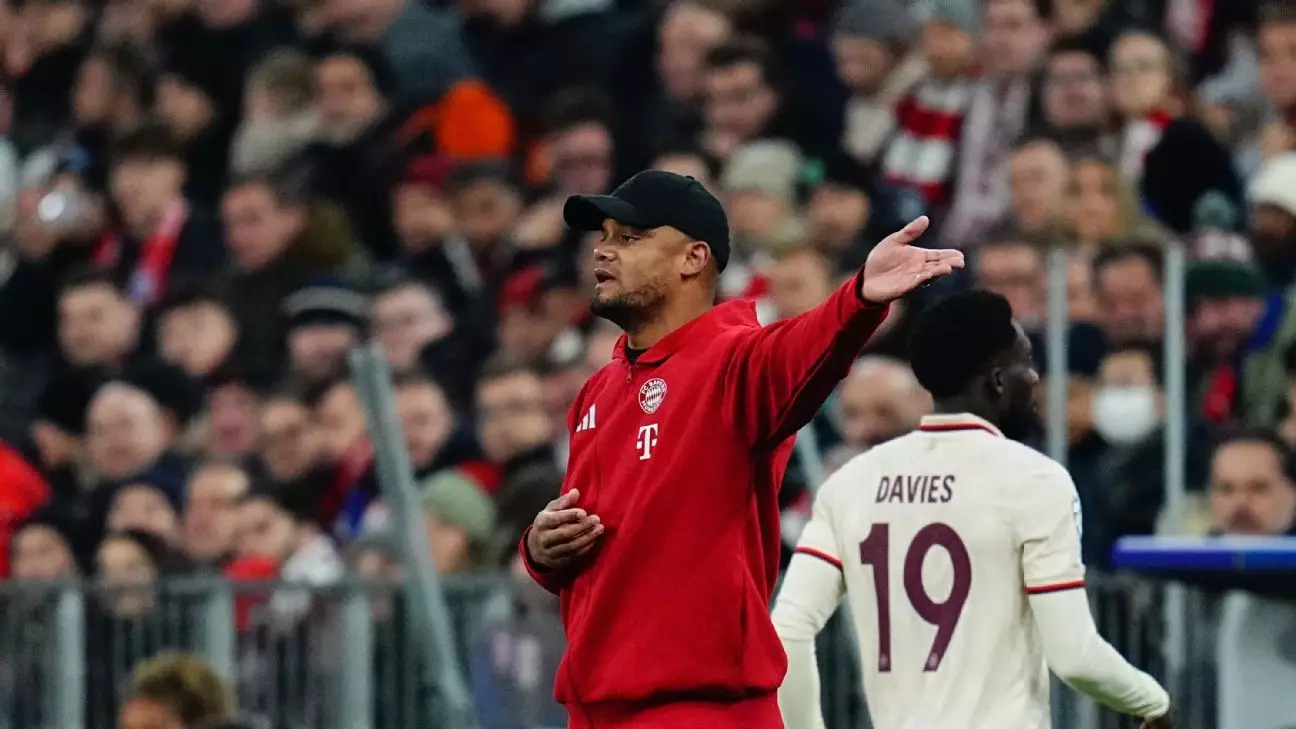Bayern Munich’s ascent in the 2023 Champions League, highlighted by their recent 1-0 victory over Paris Saint-Germain, reveals the complexities of the tournament’s new structure. Coach Vincent Kompany candidly admitted his confusion over the rules, a sentiment that resonates with many observers navigating the complexities of the revamped format. The competition now features a 36-team league where each team confronts eight different opponents—a significant shift from the previous system of facing three teams twice. This alteration has introduced an ambiguous layer to performance analysis, as teams now compete not merely against defined rivals but within a broader, more intricate framework.
The victory for Bayern Munich was a testament not just to the team’s resilience but also to the tactical acumen of their new head coach. The first-half goal from Kim Min-Jae served as the crucial linchpin in what turned out to be a tense encounter, particularly following Paris Saint-Germain’s red card that left them with ten men. The Bavarians have secured three wins in their five matches, positioning themselves tantalizingly close to the coveted top-eight spots that guarantee automatic progression to the knockout stage. Kompany’s emphasis on pressing and discipline in those pivotal moments underscored the team’s commitment to evolving under his stewardship.
However, beneath the surface of this tactical triumph lies the challenge presented by the new format, which adds pressure to every match. In this environment, every victory feels less like a confirmation of superiority and more like a necessary step amidst uncertainty. Kompany himself illustrated this ambivalence in his cautionary approach to discussing the league standings: “I don’t look at the table because, honestly, I don’t yet understand it.”
Paris Saint-Germain, on the other hand, languishes in a precarious position at 26th place with only four points. Their chances of advancing appear slim, creating an added layer of intrigue within this new format. The stark contrast between Bayern’s aspirations and PSG’s struggles highlights the unpredictable nature of this season’s Champions League, where traditional powerhouses are being challenged by emerging dynamics. The road ahead for both clubs suggests a need for greater strategic foresight as they navigate their respective paths toward the knockout stages.
As Kompany reflects on his side’s future, he stresses the importance of continual improvement. His statement, “If we win our remaining games, we have a chance to make the top eight,” encapsulates the necessity of focusing on incremental successes rather than becoming overly fixated on the evolving complexity of competitions. The journey through this year’s Champions League promises to be as challenging as it is enlightening, forcing teams to adapt rapidly or risk being left behind. As Bayern Munich rallies toward their goal, it is clear that ambition and strategy will be paramount in overcoming the befuddling new landscape of European football.

